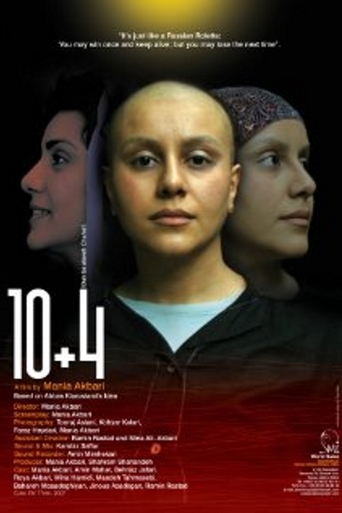

It’s an especially fun movie from a director and cast who are clearly having a good time allowing themselves to let loose.
... View MoreThe performances transcend the film's tropes, grounding it in characters that feel more complete than this subgenre often produces.
... View MoreWhile it doesn't offer any answers, it both thrills and makes you think.
... View MoreOne of the best movies of the year! Incredible from the beginning to the end.
... View MoreDah Be Alaveh Chahar - (AKA 10 + 4, 2007) - represents a sequel to Abbas Kiarostami's 2002 art-house hit 10. This outing, however, is directed not by Kiarostami but by his lead actress from the earlier film, Mania Akbari, essaying both her second directorial credit and the lead role in this picture. As in the first installment, Akbari spends her screen time as an unnamed character, driving a car and conducting long conversations with passengers - including her son, her sister and others. Yet here, she's suffering from a terminal cancer that is slowly worming its way through her body. When it renders her completely incapacitated as a driver, she moves to the backseat and conducts her conversations from that locale. In fact, the cancer in time becomes so advanced that it begins to direct the woman's movements, actions and film making; throughout the picture, the film's point of view never takes its gaze off of the female subject. ~By:Nathan Southern, Rovi
... View More